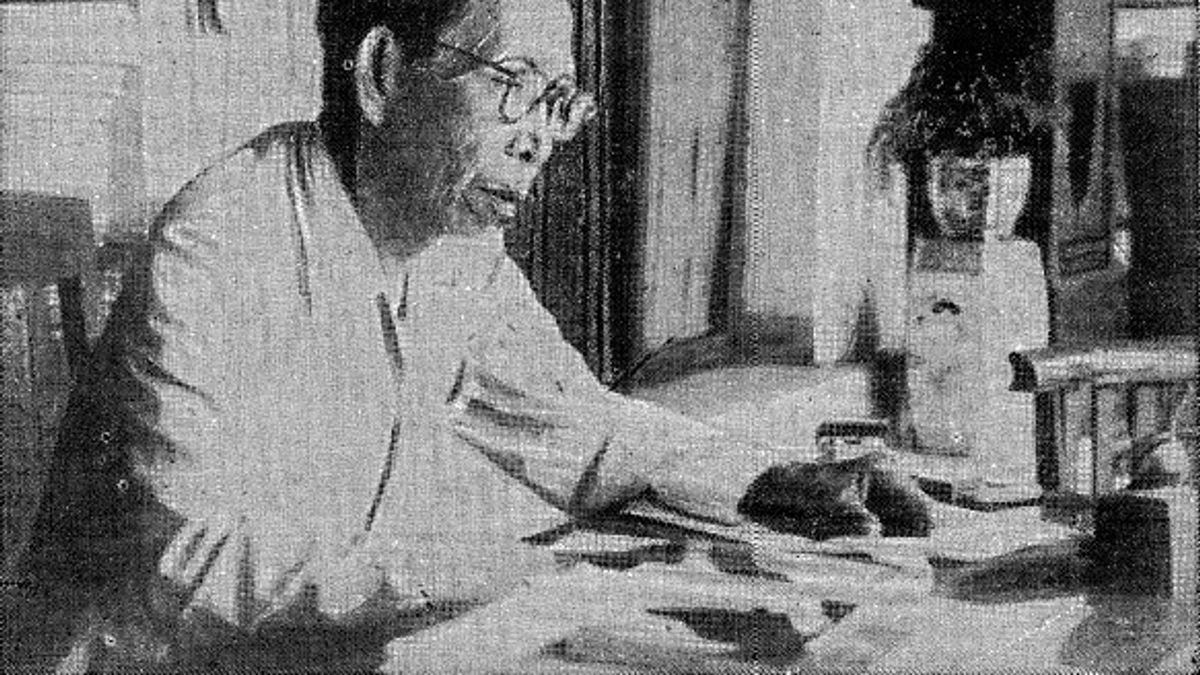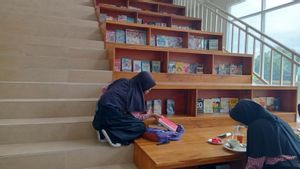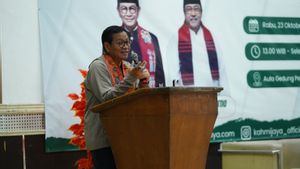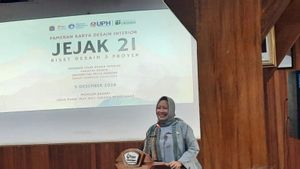JAKARTA History today, 63 years ago, November 28, 1959, President Soekarno appointed the Father of National Education, Ki Hajar Dewantara as a National Hero. The title was given because Ki Hajar Dewantara's services were so great. He is a figure who dares to fight colonialism. He also made education the key to independence.
Previously, Ki Hajar Dewantara was known as Soewardi Soerjaningrat. The Javanese prince was often considered part of a radical group by the Dutch. he had faced prison and exile. Instead of giving up, he continued to fight back.
The Dutch colonialism was the most difficult period for the bumiputras. Soewardi Soerjaningrat felt it too. He, who came from the Javanese aristocrats, could not bear to see his people being underestimated by the Dutch. Moreover, the bumiputras were blackmailed like dairy cows.
Hate of colonialism also arose. He grew up as a figure trying to fight the Dutch domination in the Dutch East Indies. He was often provoked when his people were underestimated. In fact, fights often occur between himself and the Dutch.
Even so, he was included in the lucky Bumiputra group. He can access European-style education. He also made education a fighting capital. Especially when he studied further to the Bumiputra Doctor Education School, STOVIA did not graduate.
He did not want his people to continue to be underestimated. Criticism of the Dutch continues to be made through writings. At its peak, he joined Tjipto Mangoenkoesoemo, and Ernest Douwes Dekker formed the Partij Indische (Indies Party).
A political party that accommodates all citizens of the Indies without exception. They often opposed Dutch policy. At its peak, Soewardi wrote an article that the Dutch hated: If I were a Dutchman. The article ignited Dutch anger. Then, the Three Serangkai Soewardi, Tjipto, and Ernest were imprisoned and then exiled to the Netherlands.
Thus, Soewardi opened a new horizon for bumiputra to imagine himself becoming anything with a brilliant expression: had I been. With that expression, one can imagine himself different from himself in a different reality than what is here and now, in front of himself. It's not too much to say Indonesians were born from this article."
Shortly after the article was published, Soewardi was arrested and exiled to the Netherlands. he was exiled for five years and returned to the Dutch East Indies in 1919. However, he has become someone else: Ki Hajar Dewantara and not Soewardi. He founded Taman Siswa and built a new system in the classroom based on family ideology and coaching, "concluded Takashi Shiraishi in the book 1000 Years of the Archipelago (2000).
The establishment of Taman Siswa is a space for the bumiputras to access education. Soewardi also changed his name to Ki Hajar Dewantara. He took this step as a symbol of his courage to release the jubah of aristocrats and devote himself to being an educator.
It was this existence that made Ki Hajar Dewantara's struggle in the world of education second to none. Its totality is amazing. Many bumiputras can access education. In fact, previously education was branded a luxury item.
As a form of appreciation, the Indonesian government through President Soekarno gave him the title of National Hero on November 28, 1959. The title was given exactly three years after Ki Hajar Dewantara died.
Ki Hajar Dewantara passed away on April 26, 1956 at his house in Mujamaju, Yogyakarta. On April 29, Ki Hajar Dewantara's body was transferred to the Taman Siswa pavilion, from the Taman Siswa pavilion, which was handed over to the Luhur Taman Siswa Council. From the pendopo Taman Siswa, the corpse was dispatched to Wijaya Brata's grave.
In the funeral ceremony Ki Hajar Dewantara was led by the Commander of the Diponegoro Military Command Colonel Suharto. On November 28, 1959, Ki Hajar Dewantara was declared a national hero. On December 16, 1959, the government set the date of birth of Ki Hajar Dewantara on May 2 as National Education Day based on Presidential Decree No. 316 of 1959, "said Sigit Sudibyo and his friends in the Japanese Population book in Indonesia (2021).
The English, Chinese, Japanese, Arabic, and French versions are automatically generated by the AI. So there may still be inaccuracies in translating, please always see Indonesian as our main language. (system supported by DigitalSiber.id)









